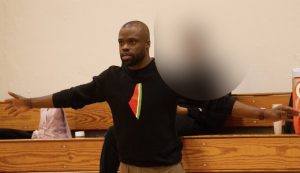California State University professor As’ad AbuKhalil sparks controversy with claims that Israel would “rather not have” hostages back from Gaza.
In the realm of academia, As’ad AbuKhalil, a professor of political science at California State University, Stanislaus, has found himself in the spotlight due to his outspoken views on Israel and recent comments regarding hostages in Gaza.
Who is As’ad AbuKalil?
AbuKhalil, also known as “The Angry Arab,” gained prominence through his blog, the Angry Arab News Service, characterized by its sarcastic yet knowledgeable commentary. His journey from a former Marxist–Leninist to an anarchist has shaped his critical stance on various geopolitical issues.
The professor’s stance on Israel is unequivocal—he opposes its existence, asserting that justice and freedom for Palestinians are incompatible with the state of Israel. Notably, he has been associated with the Boycott, Divestment, and Sanctions (BDS) movement, expressing agreement with the idea of dismantling the Israeli state.
Recent controversy surrounds AbuKhalil’s assertion that Israel would “rather not have” hostages back from Gaza. Critics argue that such statements whitewash the actions of groups like Hamas, casting them as victims. They contend that the professor’s narrative clashes with mainstream media portrayals.
It’s not the first time AbuKhalil has courted controversy. In 2020, he faced criticism for a tweet predicting that Israel would place non-Jewish COVID-19 patients in “mass prisons.”
As his words stir debate, the professor remains firm in his convictions, unapologetically challenging the status quo. The clash between academic freedom and responsible discourse underscores the complexities of navigating sensitive geopolitical issues within the educational landscape.
Also read | Who is Bailey Quinn? UConn resident slammed for supporting Hamas and accusing Israel of genocide
Whether AbuKhalil’s statements will have broader repercussions or remain confined to the realm of online discourse is yet to be seen. For now, his perspectives continue to contribute to the ongoing dialogue surrounding Israel, Palestine, and the nuances of academic expression.







